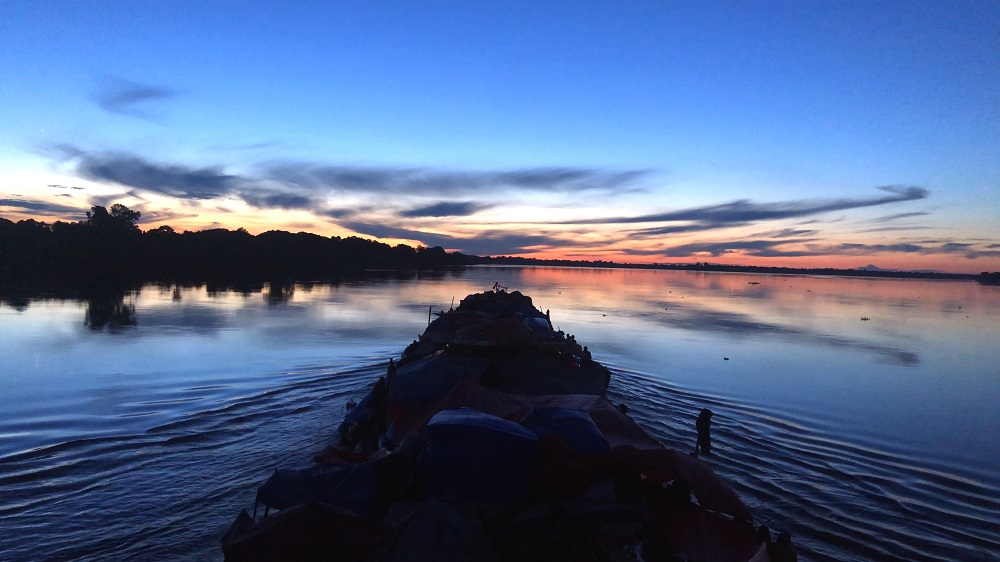
Downstream to Kinshasa
2021, NR, 90 min. Directed by Dieudo Hamadi.
REVIEWED By Jenny Nulf, Fri., April 23, 2021
In June of 2000, the Six-Day War between Rwanda and Uganda raged across the city of Kisangani in the Democratic Republic of Congo. In Downstream to Kinshasa, the first ever Congolese film selected for the Cannes Film Festival, documentarian Dieudo Hamadi lends his focus to the two-decade aftermath of the battle, and a group of war victims who have had enough. After 20 years of fighting for official recognition, they decide to take a treacherous boat ride down the Congo River from Kisangani to the country’s capitol, Kinshasa, to fight for compensation of what they lost.
The bloody and violent battle resulted in the mutilation and death of thousands of Kisangani residents, turning many into widows and orphans. In addition to documenting the journey of these survivors to the capitol, Hamadi creates a theatrical frame that unfolds a lot that cannot be communicated from the boat trip alone. Monologues, music, and biographical scenes are powerfully performed, and a particular standout is Sola, a woman who lost her legs during the Six-Day War. Her performance within these dramatic sequences showcases her specific resilience, beginning with a scene depicting the day she lost her legs, and ending in one where she’s singing about her wedding day. This playful structure lends a greater voice and insight to Hamadi’s subjects, elevating and deepening their stories.
The boat journey itself takes up a considerable amount of screen time, its grueling demands emphasized by handheld camerawork. One of the toughest discussions on the boat among the group centers on how their families lack respect and kindness toward their disabilities, and the group realizes those they used to love now find them to be a burden. They treat them poorly, not buying them new clothes, or gaslighting them toward suicide. But their journey to the capitol is about their worth, and the payment they deserve from a war that left them with much less.
Downstream to Kinshasa is a simple narrative, with a group of resilient survivors getting from point A to B, but its simplicity is impactful. It is clear and concise about its purpose, and by the end his subjects’ desires are explicit. Hamadi emphasizes the rigorous journey, and while the final 20 minutes in Kinshasa feel extremely lean and almost fast-paced, Hamadi’s thoughtful additions showcase just how powerful this singular group from Kisangani is.
Available as a virtual cinema release.
A note to readers: Bold and uncensored, The Austin Chronicle has been Austin’s independent news source for over 40 years, expressing the community’s political and environmental concerns and supporting its active cultural scene. Now more than ever, we need your support to continue supplying Austin with independent, free press. If real news is important to you, please consider making a donation of $5, $10 or whatever you can afford, to help keep our journalism on stands.
June 28, 2024
Richard Whittaker, June 28, 2024
Downstream to Kinshasa, Dieudo Hamadi









